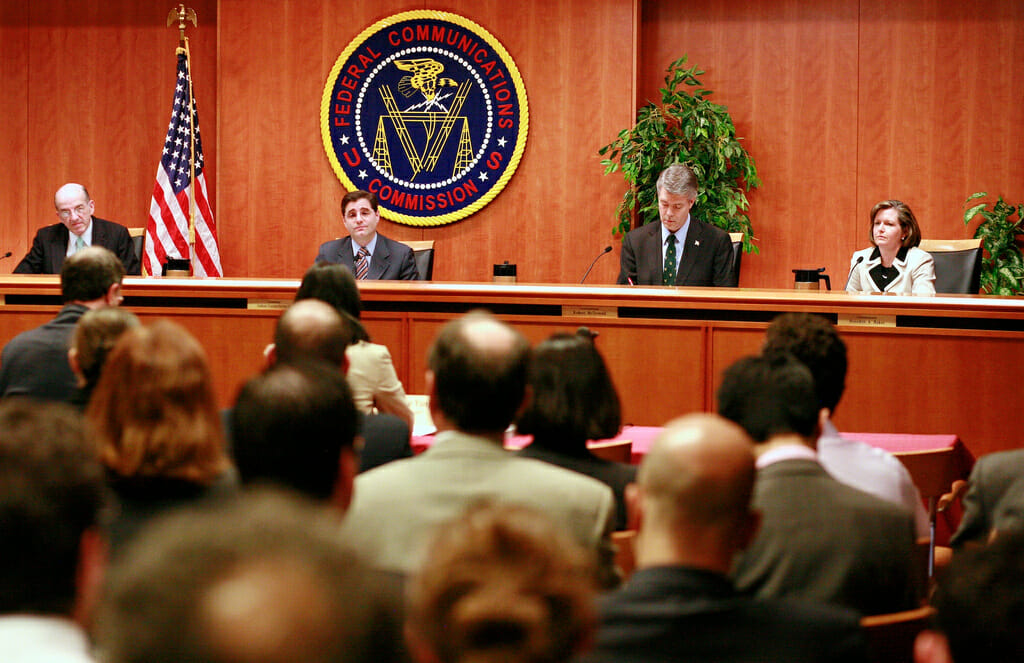Under new leadership, the FCC is reversing several policies made under the previous administration. Photo courtesy of Greg Elin, licensed under Creative Commons.
Over the course of three short weeks, the Trump administration has made great progress in reversing much of progress made under the Obama administration, and this extends to the Federal Communications Commission (FCC). Through his nomination of Ajit Pai as the FCC chairman, Trump is imposing his anti-regulation, “pro-business” agenda on the commission.
Although the “Two for One” executive order mandating the repeal of two regulations for every new regulation does not apply to the FCC, Chairman Pai is working furiously to “[eliminate] unnecessary burdens and rules.” The commission has struck down subsidized internet access from the Lifeline Program for low-income Americans, seemingly going against Pai’s repeated promises to close the digital access divide between the upper, middle, and lower classes.
Additionally, Pai has threatened the effectiveness of net neutrality, a policy that prevents internet service providers (ISPs) such as Comcast and Spectrum (formerly Time Warner Cable) from selectively throttling internet access for businesses and consumers. By calling off the FCC’s probe into zero-rating on Verizon, AT&T, and T-Mobile, Pai is turning a blind eye to the gray zone where businesses can pay to have their data exempted from consumers’ data caps. Zero-rating programs, including T-Mobile’s Binge On, though they seem to positively benefit consumers, have the potential to spiral out of control without appropriate oversight and hurt small business that can’t afford to cough up extra cash for ISPs.
The laissez-faire attitude of the new FCC is, unfortunately, an issue that is likely to languish outside the public eye without greater citizen awareness of the meanings behind all the tech lingo. Nevertheless, the commission’s actions directly affect internet accessibility for Americans and business in the U.S., for they protect against the monopolistic, anticompetitive tendencies of ISPs.
While consumer ignorance is the main danger to these protections, loud public response may reverse the situation, just as it affected the reestablishment of net neutrality under former chairman Wheeler’s leadership. Either way, technology policy is looking to be interesting under Trump, though not necessarily in a good way.








